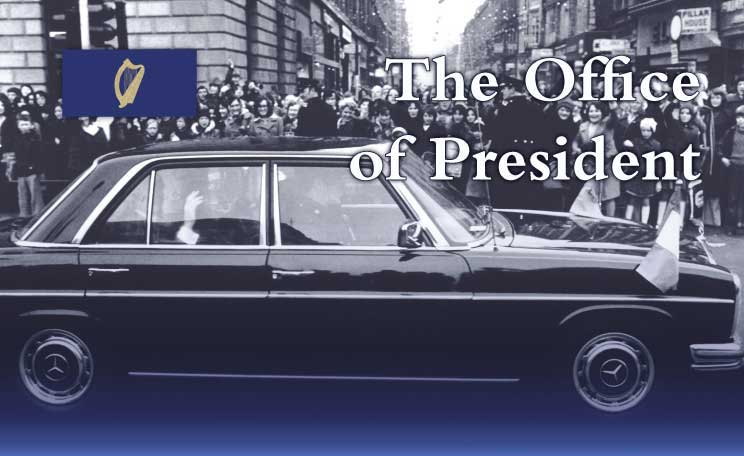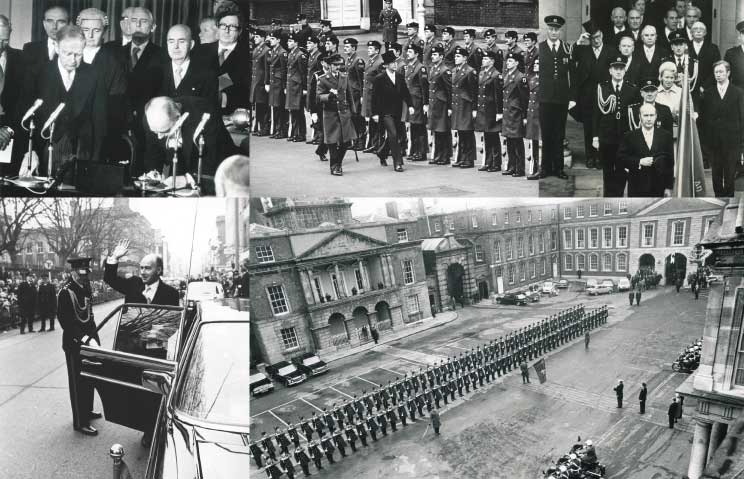With specified exceptions, the functions of the President are performed on the advice of Government. The President is not answerable to either House of the Oireachtas or to any court in the performance of his/her functions but the Constitution lays down procedure under which the President may be impeached for stated misbehaviour. The President holds office for seven years.
Who Can Become President
Every citizen of Ireland who had reached the age of 35 years is eligible for election to the office of President. A person who holds, or has held, office as President is eligible. A candidate must be nominated either by:
• Not less that 20 members of the Dáil Éireann or Seanad Éireann, or
• Not less that four administrative counties (including County Boroughs)
• A former or outgoing President may nominate his/herself as a candidate
The Presidential returning officer and the President of the High Court then rules on the validity of the nomination received.
The Poll
For the purpose of a presidential election the country is divided into the same constituencies as for a Dáil election. The Dáil returning officer for a constituency is the returning officer for the constituency at a presidential election. The President is elected by the direct vote of the people. Voting is by secret ballot on the single transferable vote system. The system enables the elector to indicate his/her first and subsequent choices on the ballot paper. The form of ballot paper is prescribed by law.
Duties and Functions:
The Constitution of Ireland outlines the role of the head of state as largely ceremonial. Most of the functions of the President may only be in accordance with the Constitution, or the “advice” of the Government.
Functions:
• Appoints the Government
• Convenes and dissolves Dáil Éireann
• Signs bills into law
• Represents the state in foreign affairs
• Supreme Commander of the Defence Forces
Special Limitations
• The President may not leave the state without the consent of the Government
• Every formal address of message “to the nation” or to either or both Houses of the Oireachtas must have prior approval of the Government. Outside of these occasions, the President has no limitations on the right to speak.
|

